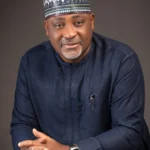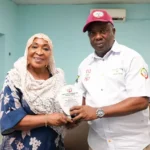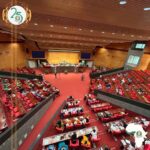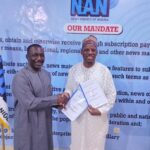Rule
Some stakeholders in Rivers politics have expressed divergent views on the six-month emergency rule in the state, with some describing it as ineffective while others said it restored peace.
The News Agency of Nigeria (NAN) recalls that President Bola Tinubu, on March 18, declared a state of emergency on Rivers due to heightened political crisis.
The crisis was as a result of disagreement between Gov. Siminalayi Fubara and his political godfather, Nyesom Wike, the Minister of Federal Capital Territory, over control of state political resources.
The President suspended Fubara and members of Rivers House of Assembly, and announced retired Vice Admiral Ibom-Ete Ibas as the Sole Administrator of the state.
Analysing the impact of the emergency rule, Mr Egele Bright, a Peoples Democratic Party Chieftain in Andoni Local Government Area, said that Ibas restored peace to the state.
Bright said that, as the Sole Administrator, Ibas politically stabilised the state and doused tension, which was not there before the emergency rule.
“The smooth conduct of local government council elections and the swearing-in of chairmen and councillors across the 23 LGAs have also driven political stability to the grassroots,” he added.
In his contribution, Mr Henry Ekini, National Legal Adviser of the Committee for the Defence of Human Rights, described the emergency rule as avoidable.
He said the administrator had no mandate from the people and did not deliver on welfare and infrastructure.
Ms Annkio Briggs, a Niger Delta activist, said that Ibas did not implement key projects such as Trans-Kalabari Road and coastal bridges.
She said that the emergency rule denied the citizens elected leadership and undermined human capital development.
On Fubara’s reinstatement, Briggs said that there were concerns since the National Assembly was on recess.
Comrade Savior Oscar, President South-South Youths Initiative, a civil society group, called for an investigation into the six-month administration of Ibas.
Oscar said that Ibas conducted local government elections in the state and that were criticised by many Nigerians.
According to him, the emergency rule negatively affected socio-economic activities in Rivers.
A lawyer, Mr Ambrose Igwe, expressed dissatisfaction that Ibas could not unveil those behind crude oil pipeline explosions that painted the state as unsafe.
On his part, Prof. Daniel Mbee, Director of the Centre for Disaster Risk Management and Development Studies, urged Rivers residents to focus on the development of the state.
He said that Ibas had done his part although Rivers had stagnated compared to states such as Lagos.
Meanwhile, Prof. Ibibia Worika, Secretary to the State Government, has announced commencement of the state’s transition from emergency rule to democratic governance.
He announced an inter-denominational church thanksgiving as part of transition activities.
Commenting on the planned transition, a lawyer, Mr Gogonte Obadiah, noted that the state of emergency was expected to last for an initial period of six months, which would elapse on Sept. 18.
Mr Neo Wilcox, a Port Harcourt resident, said that personal or collective interests were expected to play out upon Fubara’s reinstatement, urging a common ground and necessary compromise in the interest of the state.
Mr Felix Ogeh, a businessman, urged collective efforts in protecting peace in Rivers to avoid more crisis.
(NAN) (www.nannews.ng)
Edited by Jane-Frances Oraka












